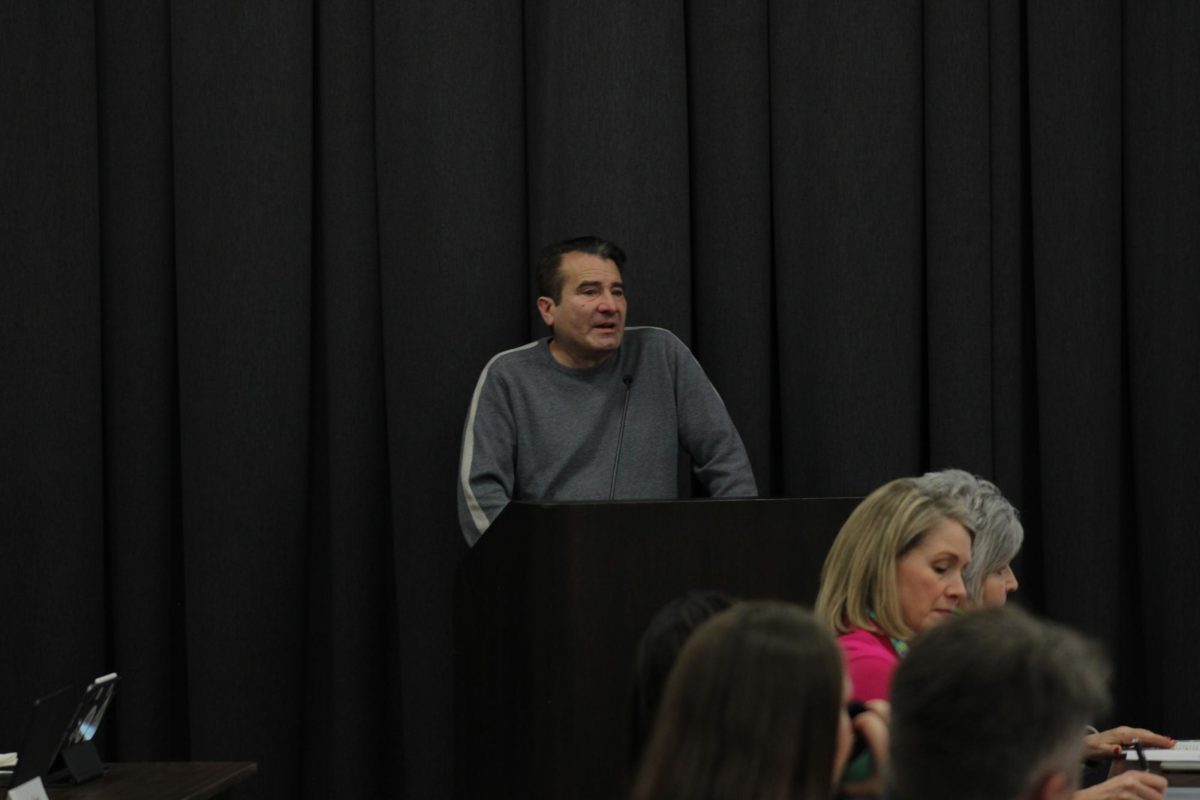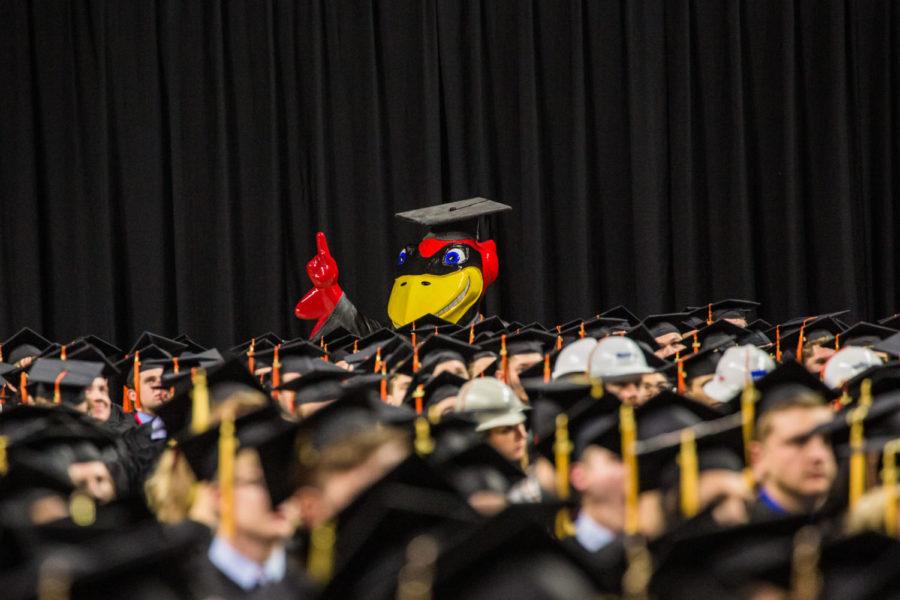The next stage of Immediate Access emerges for Iowa State. Instead of paying for each online textbook individually, the digital course materials program is launching Immediate Access ONE in fall 2024.
“Student success, affordability and access is the primary mission of Immediate Access ONE,” said Heather Dean, the assistant director of the ISU Book Store.
Immediate Access ONE will charge each full-time undergraduate student enrolled a cost of $259 per fall or spring semester, regardless of their major or the number of books assigned by professors.
“I think the primary benefit of the Immediate Access ONE program will be greater convenience for students. I am not convinced, however, that students will consistently save money with the program,” said Aaron Wood, associate teaching professor. “Students have the ability to opt out of the program, of course. It will be the student’s responsibility to estimate their potential expenses prior to the opt-out deadline and determine if the flat fee will benefit them or not. In my opinion, many students, especially freshmen, are unlikely to conduct a budget projection and will likely pay the fee no matter what.”
This program will cost $69 per term for the winter and summer semesters.
“We’re 90% digital, so there is some of that print hanging on, but [Immediate Access ONE] makes that whole process easier for students to not have to navigate when adding and dropping courses,” Dean said. “The week leading up to classes and the first week of classes, a lot of adds and drops are happening, so it helps students with that navigation as it is automatic.”
If students wish to opt out of Immediate Access ONE, they can. They have the first 10 days from the start of classes to opt out and receive a refund. This means opting out of Immediate Access ONE for all classes, not just on a class-by-class basis.
“We’ve gotten the textbook cost per semester to drop from the $600 range to $259, which wasn’t easy,” Dean said. “We’ve been doing a lot of work with peer institutions, the faculty and university administrators to get that pricing down. We will conduct an end-of-the-year analysis, and it is really important that the rate maintains or even lowers.”
The flat rate of $259 will be credited to a student’s U-Bill account within seven to 10 business days after successfully opting out.
“We do acknowledge students who may not have a lot of books, and that’s okay,” Dean said. “Just go ahead and opt out, get your refund and carry on with what you need for your classes that semester.”
If students wish to opt out, they can purchase required textbooks individually through the ISU Book Store or from a different retailer.
To opt out of the Immediate Access ONE program:
- Log into Canvas
- Go to Immediate Access on the navigation menu
- Click Opt-Out in the upper corner
Afterward, you will receive an email confirmation from [email protected] with the subject line “YOUR PREFERENCE TO OPT-OUT HAS BEEN RECORDED.” Your U-Bill will be credited within seven to 10 business days.
“Everybody has their unique course schedule, and that is why there is the opt-out choice. If you do the math and this program doesn’t make sense, the book list and the price comparison tool will still be available to you,” Dean said. “I think we are going to find, though, a lot of students are going to do the math, and this [Immediate Access ONE] is really working and worth it.”
According to the ISU Book Store, students can purchase individual eBooks and courseware with the Compare and Purchase option on the item in Canvas. Once you complete the purchase, digital activation instructions will be provided to you via email.
“I am disappointed that the program appears to have been formulated and implemented without faculty and student feedback,” Wood said. “Textbook publishers were aware of the program well before we were. In fact, publishers appear to be capitalizing on this opportunity and encouraging faculty to adopt additional course materials, claiming there is no extra cost to students.”
Immediate Access ONE will include any required books, course packets, lab manuals and homework platforms like Connect, MyLab, Advantage, PackBack, etc.
“This is really Immediate Access 2.0,” said Associate Provost for Academic Programs Ann Marie VanDerZanden at the Faculty Senate meeting in December. “It would use a flat-rate fee for every student that is significantly less expensive than if they were to buy each of those books and course materials individually. It is a policy that still is under review and discussion.”
On the first day of classes every semester, students can access and start using the required course materials by logging into their Canvas account and clicking their class’ Canvas course and then Immediate Access.
The ISU Book Store states that Immediate Access ONE has “unmatched student benefits. These include full transparency with no hidden charges, permitting the same cost for all undergraduate students regardless of how many books their course load requires or the price.”
According to Inside Iowa State, “The Book Store has provided immediate access materials since 2012, allowing students to receive access to digital-only required course materials on the first day of class at a lower cost. The effort has saved Iowa State students a total of $19 million, including more than $2.6 million this academic year.”
Immediate Access ONE is a digital-first course materials program. Digital-first means all textbooks with a digital match will be delivered digitally through Canvas.
“Overall, both faculty and students need to be more informed about Immediate Access ONE. Faculty should continue to pursue OER [open educational resources] and be frugal when adopting textbooks and other course materials,” Wood said. “Students should seriously look at their textbook expenses and opt out of Immediate Access ONE when appropriate.”
If the required course material is unavailable digitally or the professor requests a print copy, a print copy will be provided. Required print materials are available for pickup at the ISU Book Store.
Immediate Access ONE does not include physical materials such as lab coats, goggles, art supplies or lab supplies. These can be purchased at the ISU Book Store if needed.
If students drop or add courses to their schedule, digital items will be automatically activated or deactivated in their Canvas account after approximately 24 hours. Print textbooks will need to be returned to the ISU Book Store to avoid being charged a replacement fee.
“Students’ success and retention are very important, so I know we work hard to get students here, but we all need to work harder to retain students so if they can start off day one and not have this hurdle of not having their textbooks and get on the same level as everyone else,” said Rita Phillips, the director of the ISU Book Store. “The worst thing a student can do is start school and not end—with all that student debt. We want them to get here and stay here.”
To ask any questions about the upcoming Immediate Access ONE program or if you need help or want to learn more, contact [email protected].















Sabrina | May 3, 2024 at 11:57 am
I wonder what will happen to the textbooks in the library that were required to be there for all courses?
Mark Schreiner | May 3, 2024 at 10:45 am
This seems like a way to make Iowa State Bookstore (hence, Iowa State University) the sole monopolistic provider of textbooks. It will drive the off-campus provider of textbooks out of that business (if there even is such an off-campus provider anymore).
The key provision is that if a student wants to opt out, you have to opt out of *all* textbooks. This would require (ideally before classes start) identifying all the textbooks required for your classes, and then finding alternative sources for them. Which would require knowing the specific professors teaching the classes, contacting those professors, and having them tell you the required books. Then you would have to search for those books from alternative sources, where they may or may not be cheaper. The time and effort to do this for all books in all classes before classes even start may very well not be worth the money saved and so may very well lead to all or almost all students using the Iowa State book monopoly.
While this may benefit students in the next few years, it is pretty rare for monopolies to benefit consumers (here, students) in the lonf term. The price may be low now, but without competition, there is nothing but good will to keep the university from increasing prices until book sales are net revenue producers (or greater producers of net revenue than book sales are now).